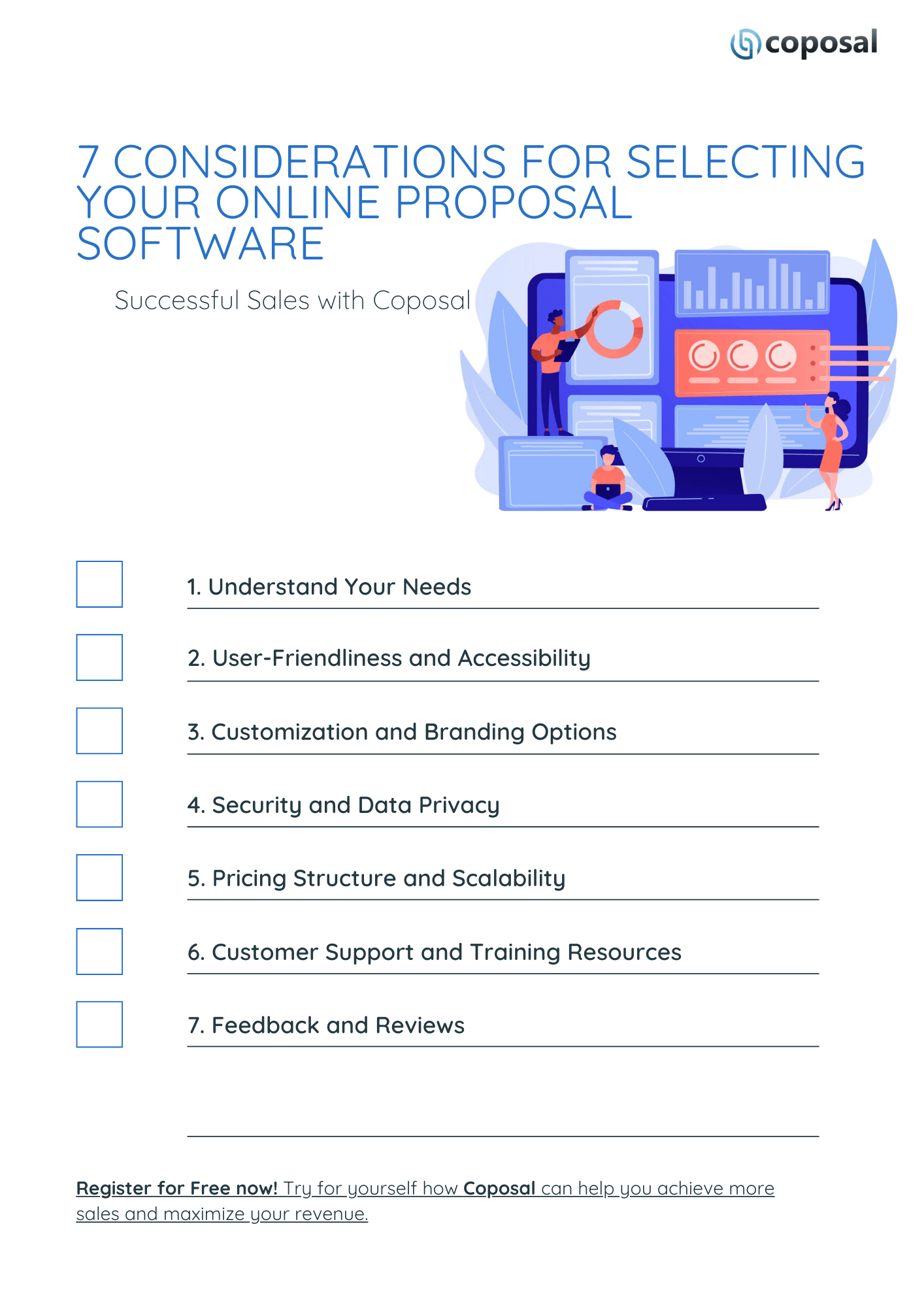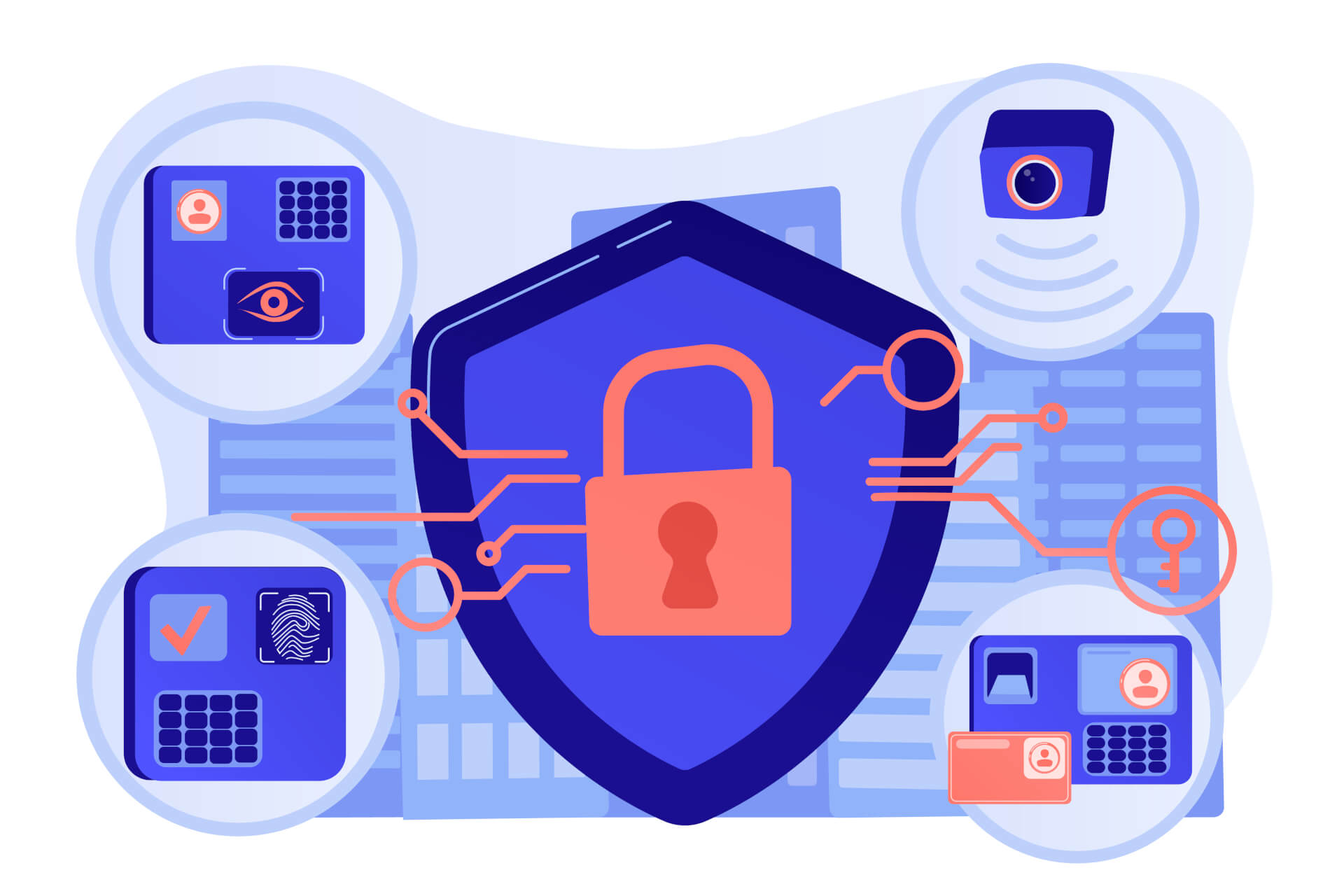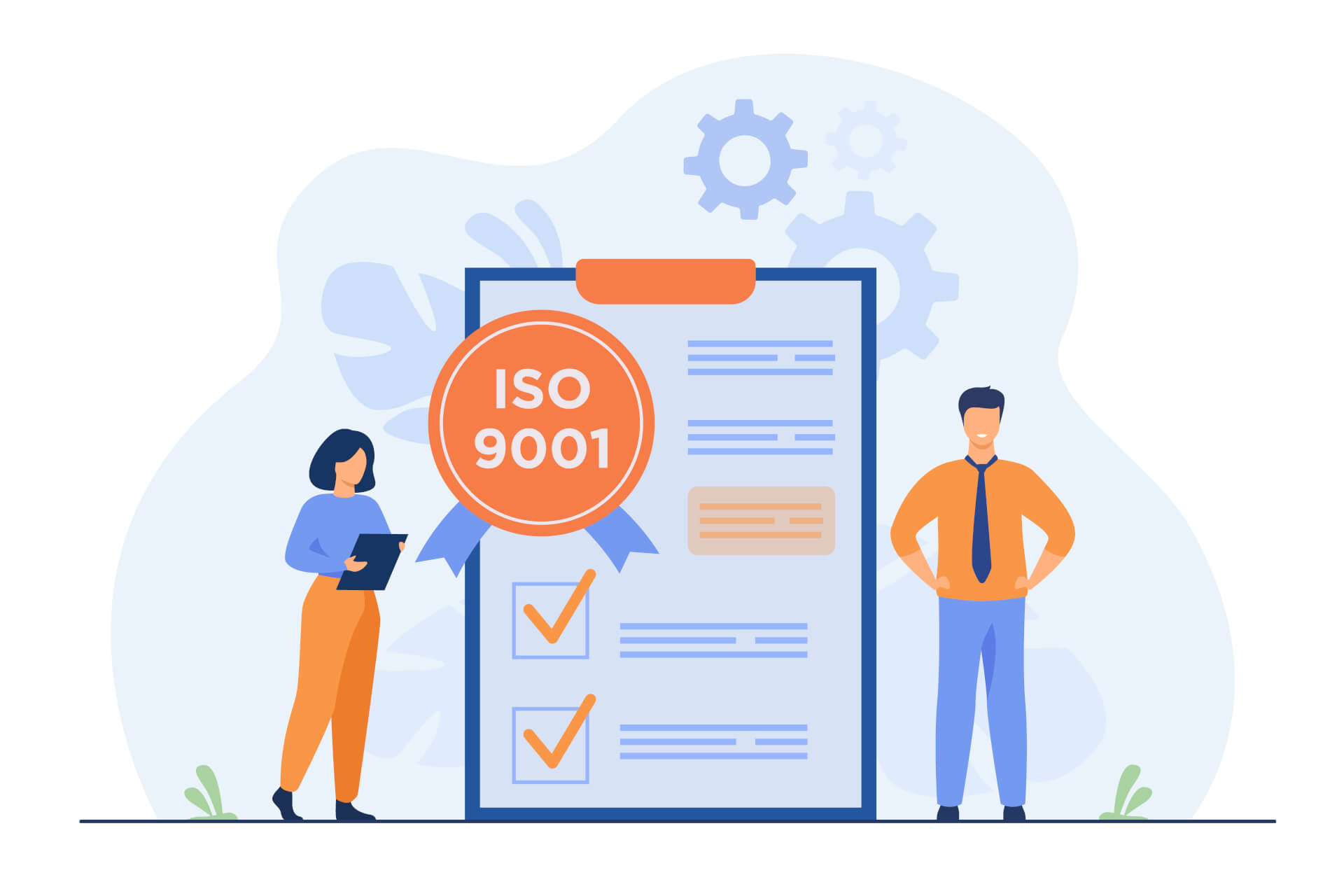 Online proposal software helps you optimize your processes for creating and managing proposals.
Online proposal software helps you optimize your processes for creating and managing proposals.
However, since there are numerous solutions available on the market with very different approaches, selecting the right software can be a daunting task.
This guide aims to simplify your decision-making process by highlighting seven important considerations to keep in mind when choosing your online proposal software.
Table of Contents
1. Understand Your Needs
 To effectively evaluate solutions for online proposal software, it is important to first understand your specific business requirements and needs.
To effectively evaluate solutions for online proposal software, it is important to first understand your specific business requirements and needs.
Consider factors such as the size of your team, the complexity of your proposals, necessary integration possibilities with existing tools, and budget limitations. By clearly defining your needs, you can narrow down your options and focus on solutions that align with your goals.
Once you have a clear understanding of your needs, research and compare various options available on the market for online proposal software.
Also, conduct a compatibility check with the tools already in use within the company to assess how well the new software can be integrated into internal processes.
Integration features can streamline your workflow by enabling seamless data transfer between different platforms, such as CRM software, project management tools, and accounting systems.
Look for software solutions that offer robust integration options to ensure smooth collaboration and data synchronization throughout your entire organization.
Additionally, take advantage of free trials or demos offered by software providers to test the usability and functionality of each platform firsthand.
Seek feedback from key stakeholders in your company during the evaluation process to ensure that the selected software meets their needs and preferences.
2. User-Friendliness and Accessibility
One of the main advantages of online proposal software is its ability to simplify the proposal creation process and improve collaboration among team members.
Therefore, it is important to choose a user-friendly platform that offers intuitive features and a seamless user interface. Consider factors such as easy navigation, drag-and-drop functionality, customizable templates, and team management tools to enable real-time collaboration.
Also, ensure that the software is accessible across different devices and operating systems to enable remote work and on-the-go proposal management.
3. Customization and Branding Options
 Your proposals serve as a representation of your brand and business identity. Therefore, customization and branding features are crucial aspects to consider when selecting an online proposal software.
Your proposals serve as a representation of your brand and business identity. Therefore, customization and branding features are crucial aspects to consider when selecting an online proposal software.
Look for platforms that offer extensive customization options so you can tailor your proposals to your brand guidelines and aesthetics.
From customizing color schemes and fonts to adding your company logo and branding elements, ensure that the software provides enough flexibility to create professional and personalized proposals that leave a lasting impression on customers.
Here are some features to help you customize and personalize your proposals to match your brand identity:
Customizable Templates
Choose an online proposal software that offers customizable templates to adjust the design, layout, and content of your proposals to match the aesthetics and message of your brand.
Look for platforms that offer a variety of pre-designed templates or the ability to create custom templates from scratch to maintain consistency and professionalism across all your proposals.
Branding Elements
The branding options of the proposal software should allow you to integrate your company logo, color scheme, fonts, and other branding elements into your proposals to enhance brand awareness and credibility.
Ensure that your branding elements can be prominently featured throughout the proposal, including cover page, header and footer, and page layout, to create a cohesive and visually appealing presentation.
Personalized Content
 Templates help streamline the proposal process. However, this does not mean that all proposals have to be the same.
Templates help streamline the proposal process. However, this does not mean that all proposals have to be the same.
Ensure that the content of your proposal templates is customizable to meet the specific needs, challenges, and goals of each customer or prospect.
Look for features like dynamic content blocks or merge tags to dynamically insert personalized information such as customer names, company details, and project details into your proposals.
This way, you can create personalized proposals on a large scale while minimizing manual effort and ensuring accuracy and relevance.
By using customizable templates, branding elements, personalized content, and dynamic content blocks, you can create brand-specific and personalized proposals that stand out from the competition, capture the attention of your customers, and strengthen your brand identity and value proposition.
4. Security and Data Privacy
Since proposals exchange confidential business information and customer data, security and data privacy should be top priorities when selecting an online proposal software.
Evaluate the security measures implemented by the software provider, such as data encryption, secure access controls, and compliance with industry standards and regulations.
Also, inquire about data backup procedures and emergency recovery plans to ensure the security and integrity of your proposal data.
Consider the following key factors when evaluating security measures:

Data Encryption
Ensure that the software uses robust encryption protocols to protect data both in transit and at rest.
Look for platforms that use industry-standard encryption algorithms and secure communication protocols like SSL/TLS to protect sensitive information from unauthorized access or interception.
Access Controls
Choose software solutions that offer detailed access controls and permission settings so you can restrict access to confidential data and features based on user roles and responsibilities.
Look for already implemented multi-factor authentication mechanisms to verify user identities and prevent unauthorized access to the system.

Compliance and Certifications
Ensure that the software provider complies with industry-specific regulations and compliance standards such as GDPR, HIPAA, SOC 2, or ISO 27001.
Look for certifications and audits from third parties that confirm the software's compliance with best security practices and regulatory requirements.
Data Backup and Recovery:
Evaluate the data backup procedures and emergency recovery plans of the software to ensure the integrity and availability of your proposal data in the event of unexpected incidents or system failures.
Choose platforms that offer regular backups, redundant storage, and fast recovery processes to minimize data loss and downtime.
By prioritizing security features such as data encryption, access controls, compliance certifications, and data backup procedures, you can confidently select an online proposal software solution that protects your sensitive information and maintains the confidentiality and integrity of your proposals.
5. Pricing Structure and Scalability
 When evaluating online proposal software, consider the pricing structure and scalability of each solution to ensure it aligns with your budget and growth plans.
When evaluating online proposal software, consider the pricing structure and scalability of each solution to ensure it aligns with your budget and growth plans.
Look for transparent pricing models that offer flexibility and scalability, allowing you to scale your usage as your company expands without incurring significant additional costs.
Consider factors such as subscription plans, pricing tiers, additional features, and contract terms to make an informed decision that provides long-term value and affordability.
Check if there are free trials available. These typically last 14 to 30 days and provide full access to the software's features, allowing users to create and manage proposals, collaborate with team members, and evaluate the user experience.
Trials and Freemium Offers
 Take advantage of the free trial period to explore the key features of the software, customize templates, and test integration capabilities with other tools and systems.
Take advantage of the free trial period to explore the key features of the software, customize templates, and test integration capabilities with other tools and systems.
Gather feedback from your team members and stakeholders to gain insights into the usability, performance, and suitability of the platform for your business requirements.
Also, use the free trial period to assess the level of customer support and training resources provided by the software provider.
Evaluate the responsiveness of customer support channels such as live chat, email support, or phone support, and explore available training materials such as tutorials, documentation, and webinars to facilitate onboarding and adoption.
Only by incorporating user feedback into your decision-making process can you select a trustworthy and reputable software provider that meets your specific needs and expectations before committing to a subscription or purchase.
Providers of online proposal software offer a variety of pricing models to accommodate different business requirements, budgets, and usage needs.
Typical pricing models for online proposal software include:
Subscription-Based Pricing
Many online proposal software solutions offer subscription-based pricing models, where users pay a monthly or annual fee to access the software's features and functionalities.
Subscription plans often vary based on factors such as the number of users, proposal volume, and additional features or add-ons included in the plan.
Subscription-based pricing provides flexibility and scalability, allowing companies to adjust their usage and costs to meet their evolving needs and growth trajectory.

Tiered Pricing
Some providers of online proposal software offer tiered pricing models, where users can choose from multiple price levels or packages that offer different levels of features, capabilities, and support.
Tiered pricing plans typically range from basic or starter plans for small businesses or individual users to premium or enterprise plans for larger organizations with advanced needs and requirements.
Each pricing tier may include a set of predefined features and usage restrictions, with the option to upgrade to higher tiers to access additional features or higher usage quotas.
Tiered pricing models offer scalability and customization options, allowing companies to select the plan that best fits their budget and usage requirements while providing room for growth and expansion.
Pay-per-Proposal Pricing
Some providers of online proposal software offer pay-per-proposal pricing models, where users pay a fee for each proposal created or sent through the platform.
This pricing model is ideal for companies with sporadic proposal needs or those who prefer a pay-as-you-go approach without committing to a recurring subscription. Pay-per-proposal pricing allows cost-effective usage, especially for smaller businesses or freelancers with low proposal volumes.
Enterprise or Custom Pricing
 For larger organizations with complex requirements or specific customization needs, many providers of online proposal software offer options for enterprise-wide or custom pricing.
For larger organizations with complex requirements or specific customization needs, many providers of online proposal software offer options for enterprise-wide or custom pricing.
These typically include tailored features, dedicated support, and personalized onboarding and training services to meet the specific needs of large-scale deployments.
Custom pricing can be negotiated based on factors such as the number of users, integration requirements, and additional services or extensions requested by the organization.
When evaluating pricing options for online proposal software, consider factors such as your budget, proposal volume, feature requirements, and scalability needs.
Compare the pricing plans offered by different providers, considering both upfront costs and the long-term value each solution provides.
Look for transparent pricing structures, flexible billing options, and clear terms and conditions to ensure you select a pricing plan that meets your requirements and offers the best return on investment for your business.
6. Customer Support and Training Resources
 Effective customer support and training resources are essential factors that can significantly impact your experience with online proposal software.
Effective customer support and training resources are essential factors that can significantly impact your experience with online proposal software.
Prioritize software providers that offer comprehensive customer support services, including live chat, email and phone support, and online knowledge databases.
Also, inquire about training resources such as tutorials, webinars, and documentation to facilitate quick onboarding for your team and maximize the software's features and capabilities.
Investing in a software solution with reliable customer support and training resources ensures a smooth implementation process and ongoing success in your proposal management efforts.
7. Feedback and Reviews
 Before making a final decision, review the feedback and reviews from current users and industry experts of the respective online proposal software to gain insights into the strengths and limitations of each platform.
Before making a final decision, review the feedback and reviews from current users and industry experts of the respective online proposal software to gain insights into the strengths and limitations of each platform.
Platforms such as review websites, forums, and social media channels can provide valuable perspectives and first-hand experiences that can influence your decision-making process.
When evaluating feedback, consider factors such as user satisfaction, software reliability, feature updates, and provider responsiveness.
By incorporating user feedback into your decision-making process, you can select a trustworthy and reputable software provider that meets your specific needs and expectations.
Conclusion
In conclusion, selecting the right online proposal software is an important decision that can significantly impact the efficiency, productivity, and success of your business in acquiring new customers and projects.
By considering the seven key factors described in this article – understanding your needs, integration capabilities, user-friendliness, customization options, security measures, pricing structure, customer support, and user feedback – you can make an informed decision that enables you to find the optimal solution for your needs.
 Reading Recommendation: If our article has helped you and you want to learn more about the topic of creating online proposals, read more here: "Online Proposals - The Basics"
Reading Recommendation: If our article has helped you and you want to learn more about the topic of creating online proposals, read more here: "Online Proposals - The Basics"